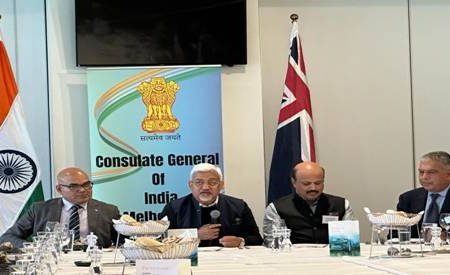Bhubaneswar: India and Australia have reaffirmed their commitment to bolstering bilateral economic cooperation, as highlighted in the recent Joint Committee Meeting (JCM) held between the two nations. With merchandise trade between India and Australia reaching approximately 24 billion USD in the fiscal year 2023-24, both countries recognize the immense potential for further growth and collaboration in various sectors.
Led by Commerce Secretary Sunil Barthwal from India and Deputy Secretary George Mina from the Department of Foreign Affairs and Trade (DFAT) in Australia, the Joint Committee Meeting provided a platform for constructive discussions on trade facilitation, investment promotion, and other areas of mutual interest.
During the meeting, both sides acknowledged the successful implementation of the India-Australia Economic Co-operation and Trade Agreement (Ind-Aus ECTA), while also addressing key issues related to market access, regulatory challenges, and trade promotion. Discussions encompassed topics such as organic products, market access for specific commodities, pharmaceutical pricing control, and regulatory frameworks for whisky and wine trade.
One notable outcome of the JCM was the establishment of an institutional mechanism for the regular exchange of preferential import data, aimed at enhancing transparency and cooperation between the two nations. Additionally, discussions focused on facilitating cross-border e-payments, mutual recognition agreements in professions like nursing and dentistry, and the mobility of healthcare workers.
The meeting also delved into the ongoing negotiations for the India-Australia Comprehensive Economic Cooperation Agreement (CECA), with both sides reviewing progress made and exploring avenues for deeper economic integration beyond traditional approaches to free trade agreements.
In parallel, discussions on WTO issues underscored the importance of collaboration between India and Australia in resolving long-standing issues such as the permanent solution to public stock holding (PSH) and plurilateral arrangements for domestic support in services.
Furthermore, engagements with businesses and industry associations highlighted areas of mutual interest and collaboration, including capacity building, vocational training, digital connectivity, agriculture, healthcare, and pharmaceuticals, among others. Both governments and businesses expressed eagerness to enhance cooperation and leverage the strategic partnership for mutual benefit.

